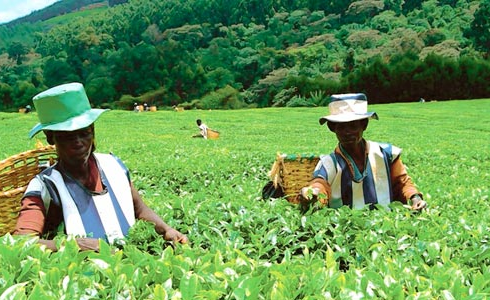At Sweet Waters, a village in central Kenya, Veronicah Nyambura stands under the hot sun between two fields. One is full of lush plants – but the other has crops so wilted that their leaves have curled up.
The green land is planted with tea tree, an Australian native that thrives in this semi-arid part of Kenya. Opposite is a field of maize, which suffers in years of poor rains and high temperatures.
“Maize is very disappointing. You plant but you’re never sure whether you’ll harvest anything,” said Nyambura, who has planted a quarter-acre of tea trees.
The 65-year-old said she harvests 900 kg of tea tree branches every six months from that bit of land. When it was planted to maize, she got about 270 kg of grain every nine months, she said.
Many farmers in this part of Laikipia County – like farmers in many parts of the world – cannot afford to buy seeds for alternative crops better suited to drought, so keep planting maize.
But Nyambura and about 800 other small-scale farmers were sold tea tree seedlings on credit by a company called Earthoil that also guaranteed to buy their harvest. Each seedling cost 3.5 Kenyan shillings, or about 3 cents.
Earthoil, which buys the branches for between 17 Kenyan shillings ($0.17) and 19 Kenyan shillings ($0.19) a kilogram, extracts the tea tree oil at its local distillery and exports it to British skin-care company, The Body Shop.
DAIRY COWS AND A TV
To meet the demands of buyers, Martin Thogoto Mwambia, 68, uses mulch – not chemical fertilisers or pesticides – on his 1.75-acre tea tree farm in Ngarariga village, in neighbouring Nyeri county.”I am mulching them with cowdung and dried leftovers of tea tree,” he said with a smile while rubbing the dirt off his hands.The farmer said he has reaped a fortune from the crop, which means he does not have to spend his old age working in menial jobs.”Handling 50,000 Kenyan shillings ($490) and sometimes 100,000 Kenyan shillings ($990) is a miracle to me. Tea tree has given me that privilege,” said Mwambia.
